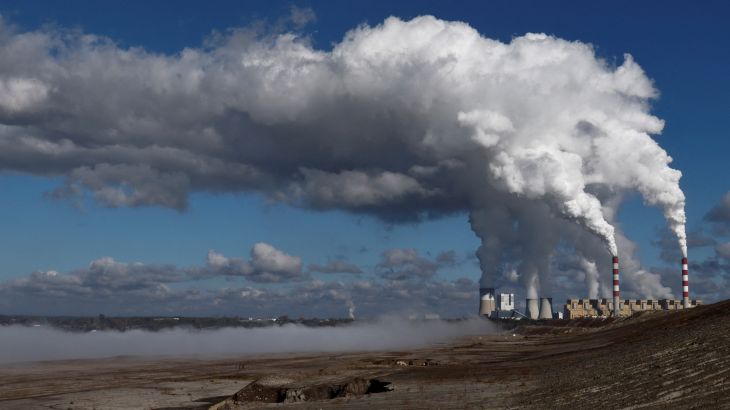‘First of its kind’: EU strikes deal on carbon border tariff
EU members agree to impose a carbon dioxide emissions tariff on imports of polluting goods to battle climate change.

The European Union member states have agreed to adopt a mechanism that will impose a tariff on imports of polluting goods – such as iron, steel, cement, fertilisers, aluminium and electricity.
The world-first scheme aiming to support European industries as they decarbonise, known as the Carbon Border Adjustment Mechanism (CBAM), will cover industrial imports from the regional bloc’s 27 member states, targeting the highest polluting products first.
Keep reading
list of 3 itemsGreta Thunberg, 600 others sue Sweden for climate inaction
COP27: Who will pay for climate ‘loss and damage’ fund?
The deal that was reached on Tuesday morning in Brussels will require companies, both domestic EU industries and overseas ones, to buy certificates to cover their embedded CO2 emissions. Companies outside the EU are already required to buy permits from the EU carbon market when they pollute.
“CBAM will be a crucial pillar of European climate policies,” said Mohammed Chahim, a member of the European Parliament from the Netherlands, in a statement released by the parliament.
“It is one of the only mechanisms we have to incentivise our trading partners to decarbonise their manufacturing industry,” he said.
Chahim added that it would allow the EU to “apply the ‘polluter pays’ principle to our industry”.
The goal of the policy is that European companies are not undercut by cheaper goods produced in countries with weaker environmental rules.
The deal includes imported hydrogen which was initially not proposed by the EU, but the politicians pushed for in the negotiations.
Some details on the law, including its start date, will be determined later this week in related negotiations on a reform of the EU carbon market.
The test period for the agreement will begin in October 2023, during which importing companies will have to report their carbon emission obligations.
Compliant with WTO rules
“The new bill will be the first of its kind,” the European Parliament said in a statement, adding that it was designed to comply with World Trade Organization rules in order to push back on accusations of protectionism.
“This mechanism promotes the import of goods by non-EU businesses into the EU which fulfil the high climate standards applicable in the 27 EU member states,” said Jozef Sikela, the Czech Republic’s minister of industry and trade.
“This will ensure a balanced treatment of such imports and is designed to encourage our partners in the world to join the EU’s climate efforts.”
Currently, the EU gives domestic industry free CO2 permits to shield them from foreign competition, but plans to phase out those free permits when the carbon border tariff is phased in, to comply with WTO rules.
How quickly that phase-in happens will be decided in the carbon market talks.
The tariff is part of a package of EU policies designed to help the world avoid disastrous climate change by cutting EU emissions 55 percent by 2030 from 1990 levels.